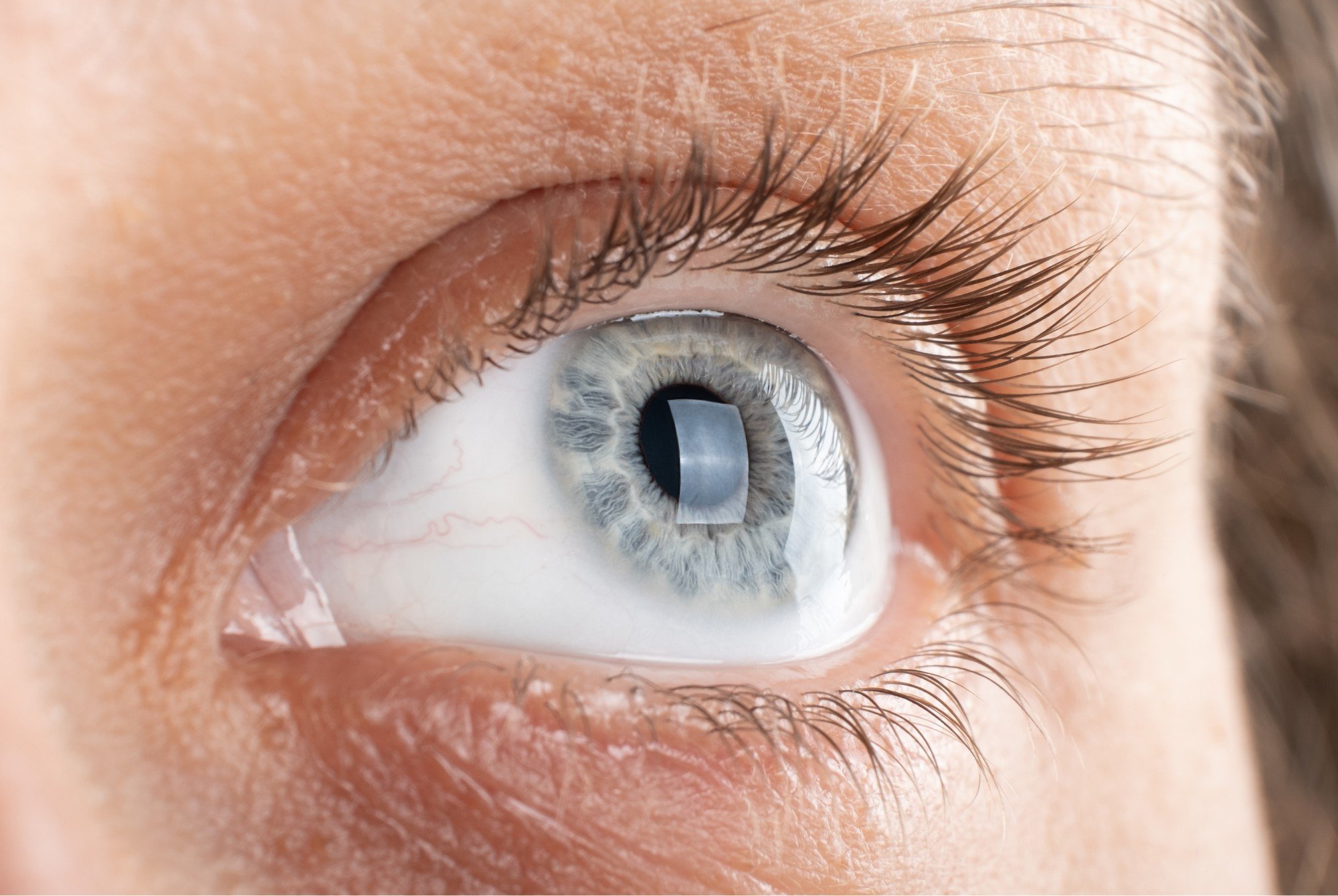
Emergency Eye Care in Daly City, CA
You're going about your day, when you suddenly feel a sharp pain in your eye. You realize that something is wrong and start to panic.
It could be a chemical burn from that cleaning solution you splashed in your eye earlier. Or a small piece of debris that flew into your eye while you were working. Maybe you're experiencing sudden vision loss or strange visual disturbances.
This is what we call an eye emergency—a situation where your eye or vision is at risk and needs immediate medical attention. If you’re having an eye emergency, act fast to prevent any long-term damage or vision loss. Seek help from an eye doctor right away and put your mind at ease.
Let’s learn about some of the most common eye emergencies and what to do about them.
Eye Trauma, Scratch on the Eye, or Foreign Object Stuck in the Eye
Sand belongs at the beach – not in your eye! Unfortunately, it doesn’t always work out that way.
Sand and other debris can lodge into the soft tissue of your cornea, or the front window of your eye. Even the smallest particles can be excruciating when they end up in your eye. They can cause itching, burning, and excessive tearing. You probably know this if you’ve ever had an eyelash stuck in your eye!
In some cases, foreign objects can scratch the surface of your eye, causing a “corneal abrasion.” A deep abrasion can cause an eye infection, so be sure to contact your eye doctor as soon as possible if this happens to you.
In his 15+ years of experience as an optometrist at Clear Vision Eyecare in Daly City, Dr. Koutoulas has seen a huge range of corneal traumas, including work-related accidents. He may prescribe antibiotics or steroids to help the cornea. If you have trauma to your eye, schedule an appointment with us today or call us at 650-757-8286.
Eye Infections (Like Pink Eye)
Not all eye infections require emergency eye care. But pink eye, or conjunctivitis, is highly contagious.
Pink eye happens when the conjunctiva – the thin membrane that lines the eyelids and the white part of the eye – gets inflamed. Your eye becomes red, watery, and irritated.
Pink eye spreads very quickly, especially among children—who then bring it home to you, parents!
Fortunately, an optometrist can treat eye infections effectively and quickly with antibiotic eye drops or ointment. In more severe cases, we may recommend a different course of action.
If you think you have an eye infection, best to be safe and stop the spread. See your eye doctor as soon as possible for a diagnosis and treatment. Book an appointment with Dr. Koutoulas at Clear Vision Eyecare today to get your eye infection treated.
Contact Lens Stuck or Lost in Eye
If you wear contact lenses, you know that getting a lens stuck or lost in your eye can be incredibly painful. A contact lens can get stuck to the center of your eye if it gets too dry. This is a major reason to avoid sleeping in your contacts!
Here’s what do if a contact lens gets stuck on the center of your eye:
Take a deep breath and try not to panic. The lens isn’t going anywhere!
Wash your hands thoroughly with soap and water to avoid eye infection.
Rinse your eye with saline solution or sterile eye drops—not contact solution—for a few seconds.
Blink a lot. This moisturizes the contact lens and may be able to dislodge it.
Close your eye and gently massage the upper eyelid.
Repeat if necessary. You may have to try this several times before you feel the contact lens get loose. Stay patient and don’t try to force it!
If your contact lens folds or moves to another part of your eye:
Wash your hands well with soap and water.
Look in the mirror and try to locate the lens. If you can see it, try to remove it with a clean finger or a soft, wet tissue.
If you don’t see the lens, blink several times to see if the lens will move on its own. Use artificial tears or rewetting drops to moisturize the eye.
If you can't find the lens or you can't remove it, don't keep trying. Cover the eye with a clean, soft cloth and get to your eye doctor as soon as possible.
REMEMBER: Never rub your eyes aggressively. This can irritate or damage the eye further.
Contact lenses are less likely to become stuck in your eye if you follow the recommended schedule for replacing lenses.
A dislodged lens may also be a sign of poor fit. In this case, your optometrist can examine your eye and set you up with better fitting contact lenses.
If you can’t dislodge a stuck contact lens on your own, or if you need a better fitting contact, give us a call at Clear Vision Eyecare in Daly City, CA. Dr. Koutoulas will get you back to feeling comfortable and pain-free in your contact lenses!
Chemical Exposure
You might be surprised to find that some common chemicals—like those in household cleaning products—can damage your vision.
Chemicals that can cause itching, burning, redness, or pain in the eyes include:
Sodium hydroxide – found in oven and drain cleaners
Air fresheners and leather cleaners that contain formaldehyde
Nail polish remover
Castile soap
The best way to avoid chemical exposure in your eye is to wash your hands thoroughly after handling cleaning products.
If you do get an irritating chemical in your eye:
Begin washing it out immediately. The longer a chemical stays in your eye, the more damage it can cause.
Using an eye irrigating solution or normal tap water, wash your eyes with a steady stream of water for at least 10 minutes. It may be uncomfortable, but open your eyelids as wide as possible and let the water fall directly into your eyes.
If the eye has been burned or it still hurts after washing it for 10 minutes, contact an eye doctor or go to the emergency room. Dr. Koutoulas at Clear Vision Eyecare can treat your chemical exposure and check for any damage to your vision, so call us at 650-757-8286.
Concussion
A concussion is a type of traumatic brain injury (TBI) caused by hitting your head. Many people don’t know that you can still get a concussion even if you don’t hit your head directly. Any blow to your body that makes your brain move inside your skull can cause a concussion.
Concussions can give you:
Headaches.
Dizziness or balance problems.
Nausea.
Confusion.
Sudden sensitivity to light or noise.
Sluggishness or not feeling “right.”
A concussion can also affect your vision. It can cause blurry or “double” vision and eyestrain. It can also cause reading difficulties, including problems with focus and eye tracking.
Healing from a concussion can be like putting together a 1,000 piece puzzle. An eye exam can help you piece together some of that puzzle.
If you, your child, or a loved one has a concussion, reach out to us at Clear Vision Eyecare in Daly City. Our optometrist Dr. Koutoulas will give you a thorough eye exam to see if he can ease any visual symptoms.
“Floaters” or Flashes of Light in the Vision
Floaters are small, squiggly shapes that drift across your vision. If you try to look directly at them, they move away. You may notice them when you look at something plain and bright, like a white wall.
Floaters are actually shadows. They usually happen when small strands of the gel inside your eye stick together and cast shadows on your retina (at the back of your eye).
Most people get floaters as they age. But floaters can be caused by more serious issues, such as:
Eye infection.
Eye injury.
Eye inflammation.
Bleeding in the eye.
Vitreous detachment – when the gel inside the eye pulls away from the retina.
Retinal tear – when “vitreous detachment” tears a hole in the retina.
Retinal detachment – when the retina separates from the back of the eye.
The treatment for floaters depends on the cause.
If you notice new floaters or if your floaters are bothering you, make an appointment with Dr. Koutoulas at Clear Vision Eyecare in Daly City. He will check your eyes and recommend a treatment to help you find relief.
Sudden Loss of Vision
Sudden vision loss can happen in an instant or over a few days. Vision may get blurry or go away completely. It can affect your whole visual field or just part of it. You might see flashing lights or “floaters.” Sudden vision loss is typically painless, but you may experience eye pain, redness, or a headache.
Causes of sudden vision loss can include:
Trauma to the eye.
Blocking of blood flow to or from the eye.
Pulling away of the retina from its usual position at the back of the eye.
Inflammation of the blood vessels around the eye.
Inflammation of the optic nerve.
Blocking of blood flow to the occipital lobe of the brain, such as during a stroke/
As you might imagine, any sudden change in vision can be serious—even if it goes away on its own.
If you have a sudden loss of vision, call us at Clear Vision Eyecare in Daly City immediately. If this happens outside our normal office hours, seek emergency medical care.



